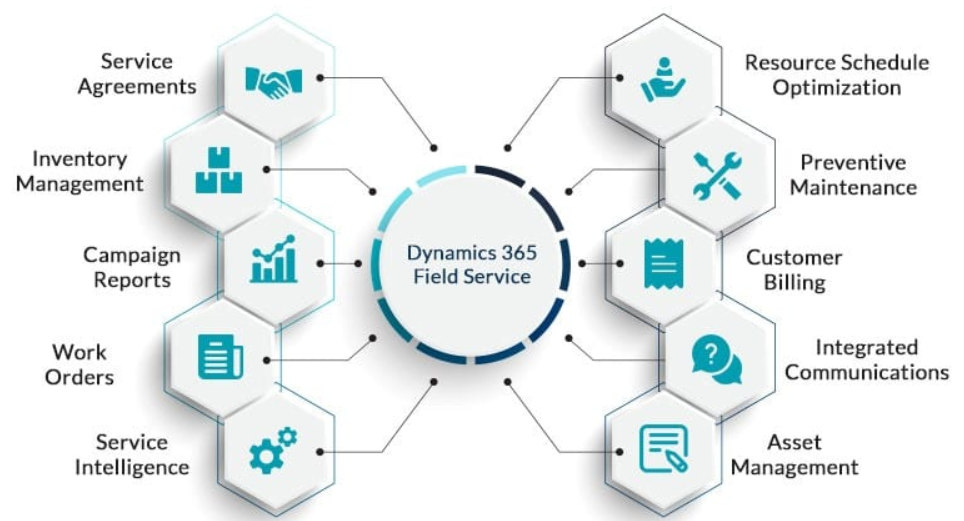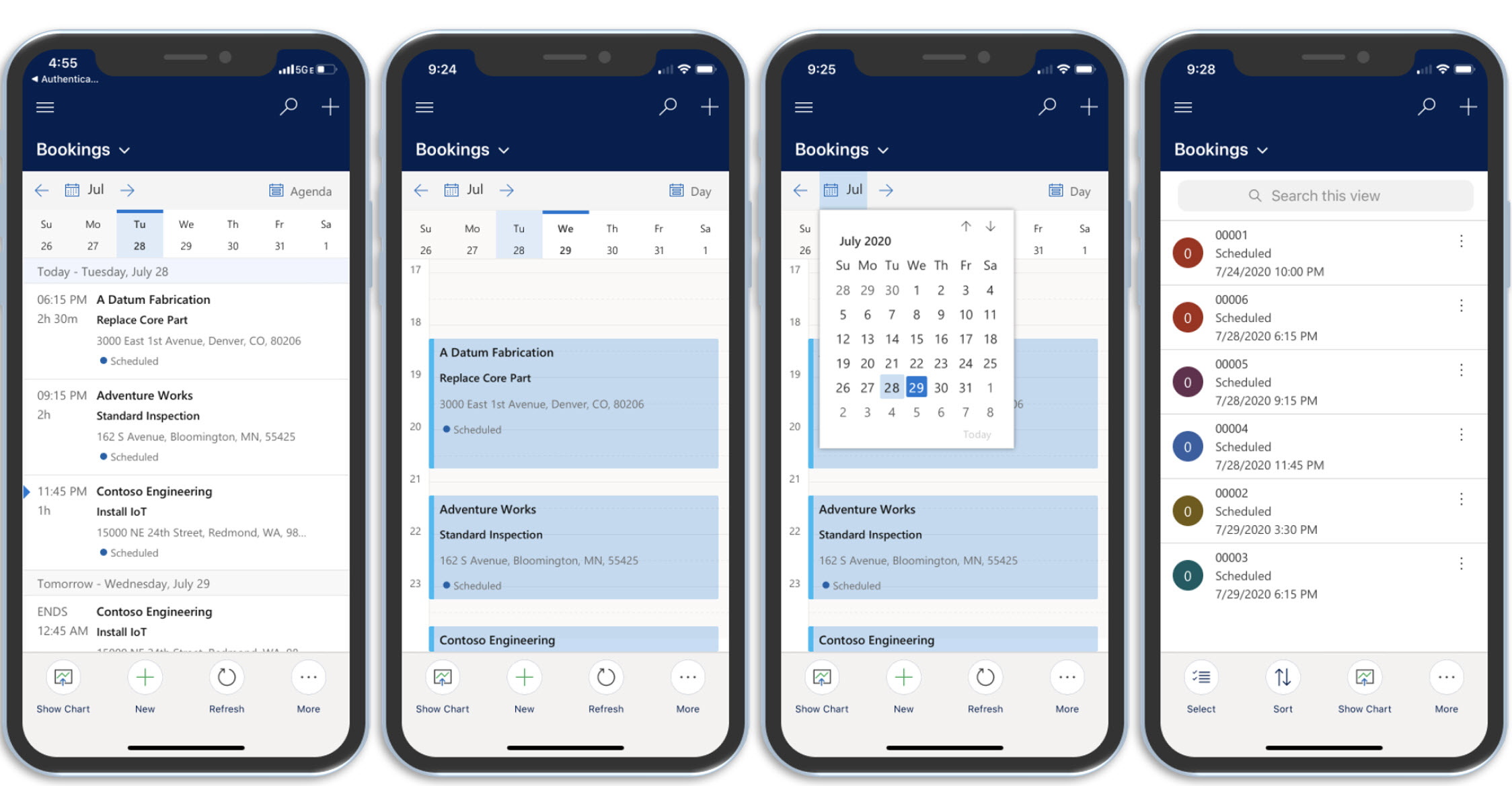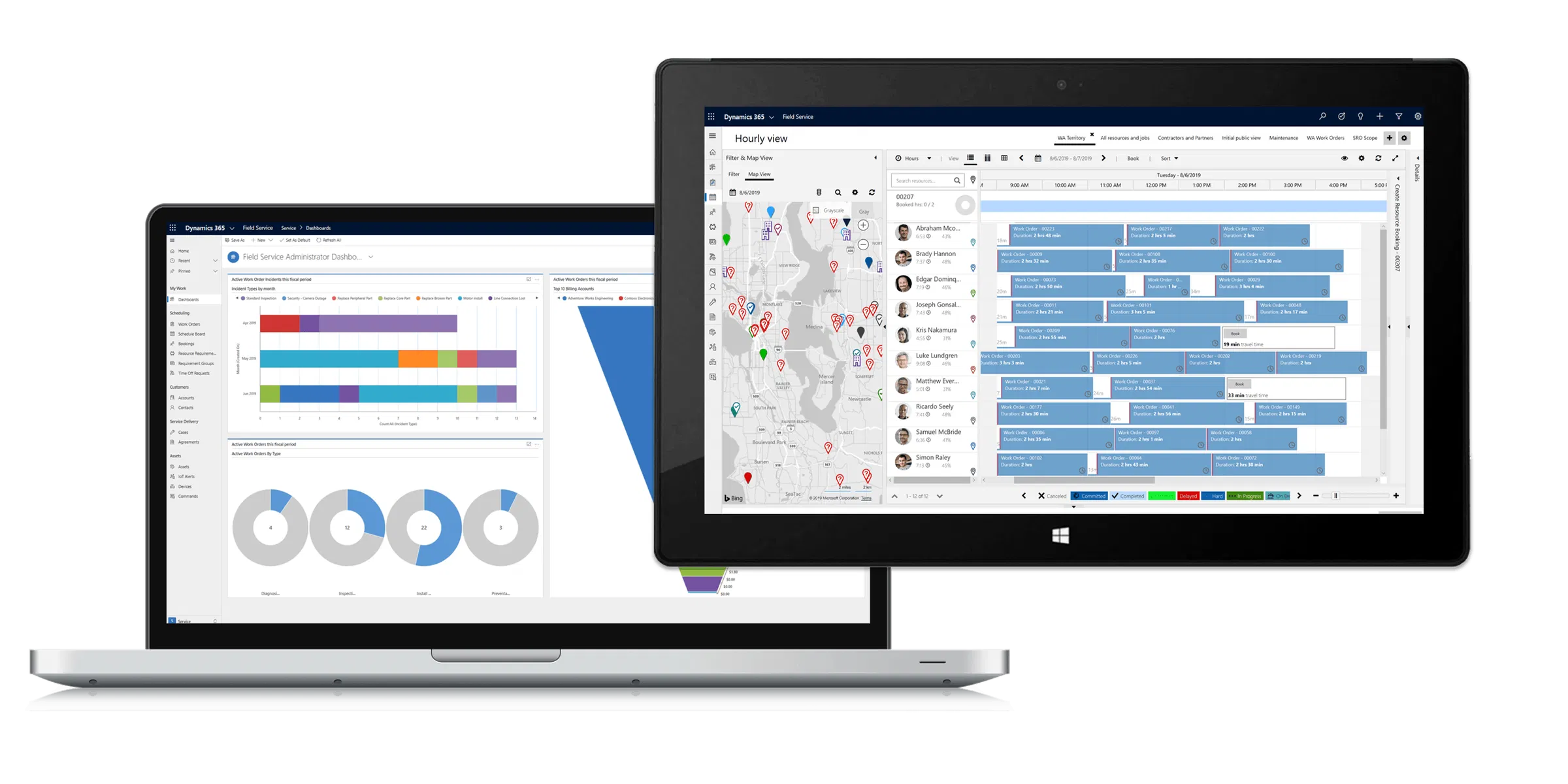- What is Microsoft Dynamics 365 Field Service?
- What are the main functions of Dynamics 365 Field Service?
- Dynamics 365 Field Service How to improve operational efficiency?
- Dynamics 365 Field Service How to improve operational efficiency?
- What is the role of AI in Dynamics 365 Field Service?
- How does Dynamics 365 Field Service integrate with other Microsoft products?
- Which industries can benefit from Dynamics 365 Field Service?
- Is Dynamics 365 Field Service for businesses of all sizes?
- How can Dynamics 365 Field Service enhance customer engagement?
- Dynamics 365 Field Service 提供哪些安全功能?What safety features does Dynamics 365 Field Service provide?
- Can Dynamics 365 Field Service be used offline?
- How does Dynamics 365 Field Service support predictive maintenance?
- How does Dynamics 365 Field Service help with resource optimization?
- What is the role of customer feedback in Dynamics 365 Field Service?
- How can businesses get started with Dynamics 365 Field Service?

Benefits of Microsoft Dynamics 365 Field Service
Improve customer satisfaction: Dynamics 365 Field Service ensures customers receive timely and reliable service by optimizing scheduling, enhancing communication, and enabling first time fixes with better resource allocation and information access.
Increased operational efficiency: The solution automates many manual processes, reduces administrative burdens and allows field service teams to focus on delivering superior service. Automated scheduling, resource optimization, and iot integration all help simplify and improve operational efficiency.
Proactive and predictive services: By leveraging iot and AI, organizations can move from a passive service model to an active or predictive service model. This not only reduces customer downtime, but also reduces emergency service costs and increases asset life.
Improved resource utilization: Dynamics 365 Field Service optimizes the use of technicians, vehicles and parts to ensure efficient use of resources. The AI-powered scheduling engine takes into account a variety of factors to better plan routes and reduce travel times.
Scalability and flexibility: As a cloud solution, Dynamics 365 Field Service is highly scalable and can be customized to the specific needs of any organization, from small businesses to large enterprises. It also supports integration with other Microsoft products and third-party applications, enabling businesses to build a comprehensive service management ecosystem.
Real-time insights and data-driven decision making: The platform provides real-time data and analytics to help service managers monitor performance, identify areas for improvement, and make informed decisions. This has resulted in continuous improvements in service quality and operational efficiency.
Product characteristics

Our services
-
 D365 Field Service implementation
D365 Field Service implementationSystem implementation and configuration: Responsible for the implementation and configuration of Dynamics 365 Field Service, including system installation, function configuration, data migration and integration. Ensure that the system integrates seamlessly with the customer's existing business environment and workflow to meet their field service management needs.
-
 Custom development
Custom developmentCustom development and function extension: Customize the system and function extension according to the special needs of customers, including developing custom modules, integrating third-party applications, creating specific reports and dashboards, etc. Help customers customize Dynamics 365 Field Service to their specific business needs.
-
 Operation support
Operation supportUser Training and Support: Provide system use training to customers' Field Service teams to ensure they can effectively use Dynamics 365 Field Service. The training content includes system functions, operating processes, best practices, etc., and provides continuous technical support to solve problems encountered during use.
Product Questions&Answers
Click on our FAQ to get the best answer!
Request Callback
Please complete the form below and we will be in touch or book a call with one of our Microsoft consultants.

























